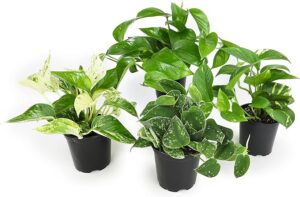In recent years, there has been a growing interest in alternative methods of farming that are both efficient and environmentally friendly. One such method that has gained significant traction is hydroponic farming. Hydroponics is a soilless growing system that relies on nutrient-rich water to cultivate plants. This innovative approach offers numerous advantages over traditional soil-based agriculture. In this article, we will delve into the benefits of hydroponic growing systems and why they are becoming increasingly popular among modern farmers and gardeners.
What are the Benefits of Hydroponics?
Now that you understand the terms, you may wonder why the growing method is getting so much buzz. What are the pros of hydroponics, and why is this growing method so intriguing?
Many hydroponics benefits make this an attractive farming method for the modern world. Such systems benefit the planet, offer ways to feed the growing population, and offer food supply protections against climate change. We’ll describe ten of the most prominent benefits of hydroponics below.
1. Water Efficiency
One of the most significant advantages of hydroponic systems is their superior water efficiency. Traditional soil-based farming consumes large amounts of water, much of which is lost to evaporation, runoff, and inefficient soil absorption. Hydroponic systems recirculate water, allowing for precise control of moisture levels. This means that hydroponic farms use significantly less water compared to conventional agriculture, making them a sustainable choice in regions with water scarcity.
2. Space Utilization
Hydroponic systems are incredibly space-efficient, making them an ideal choice for urban agriculture or areas with limited land availability. With hydroponics, crops can be grown vertically or in stacked systems, maximizing the use of available space. This ability to grow more in a smaller area is especially beneficial for addressing food security challenges in densely populated urban areas.
3. Enhanced Plant Growth
Hydroponic systems provide plants with direct access to nutrients, ensuring they receive precisely what they need for optimal growth. This results in faster growth rates, larger yields, and higher-quality produce. Additionally, plants grown hydroponically are less susceptible to diseases and pests, as the absence of soil reduces the risk of soil-borne pathogens.
4. Year-Round Cultivation
Hydroponic systems offer the flexibility to grow crops year-round, regardless of the weather or climate conditions outside. By controlling factors such as temperature, light, and humidity, growers can create an ideal environment for their plants, allowing for continuous production and a more consistent supply of fresh produce.
5. Reduced Environmental Impact
Hydroponics has a smaller environmental footprint compared to traditional farming methods. With reduced water usage and the elimination of the need for chemical pesticides and herbicides, hydroponic systems produce fewer greenhouse gas emissions and soil pollution. Additionally, because crops can be grown locally, transportation-related emissions are minimized.
6. Nutrient Control
Hydroponic systems allow growers to have precise control over the nutrients supplied to plants. This means that crops can be customized to meet specific nutritional requirements, resulting in produce with consistent quality and taste. It also enables the production of nutrient-dense foods, which can be particularly important in addressing nutritional deficiencies in communities.
7.Reduced Weeding and Soil Maintenance
One of the burdens of traditional agriculture is the constant need for weeding and soil maintenance. In hydroponic systems, there is no soil to till, weed, or cultivate, saving both time and labor. This makes hydroponics an attractive option for those looking to reduce the physical demands of farming.
Conclusion
Hydroponic growing systems represent a sustainable and efficient solution to some of the challenges facing modern agriculture. With benefits ranging from water efficiency and space utilization to enhanced plant growth and reduced environmental impact, hydroponics is a compelling choice for farmers and gardeners alike. As the world continues to grapple with issues such as food security and resource scarcity, hydroponic systems offer a promising path towards a more sustainable and resilient agricultural future.



